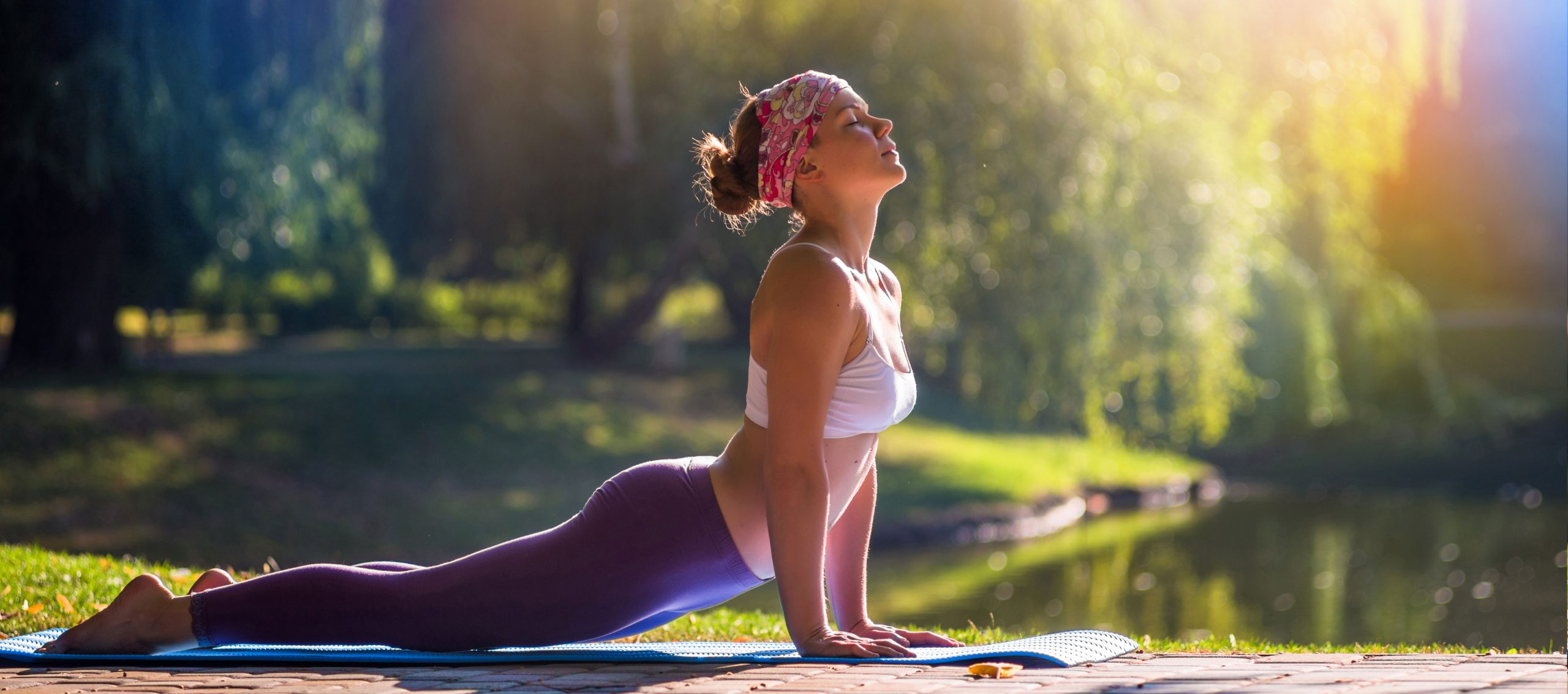
Everybody knows that to maintain a healthy lifestyle, we should exercise, eat healthy and organic food, and drink more water. After all, it is better to prevent diseases by building a resistant immune system, rather than curing them after years of unhealthy habits. There are numerous resources, studies, and opinions about this topic. In this simple guide we have collected the most helpful tips for a healthy lifestyle. Start living healthy today.
.
Nutrition
Let’s discuss nutrients. A healthy diet must consist of
- Healthy carbohydrates – unprocessed whole grains (brown rice, buckwheat, bulgur, quinoa), fruits, vegetables, beans.
- Proteins and fibers – lentils, brown rice, quinoa, buckwheat, bulgur, chicken, eggs.
- Polyunsaturated fats – fatty fish such as salmon, walnuts, plant-based oils, such as sunflower, flaxseed oils, etc.
- A moderate amount of monounsaturated fats – nuts, avocado, olive oil, peanut butter, or oil.
- Less processed junk food and trans fats.
Living healthy shouldn’t be overwhelming. Don’t dive into a new diet immediately. Begin with a few simple changes to your regular diet. Slowly, your organism will adjust to the new system.
- Instead of instant meals from the supermarket and junk food, add more fruits, vegetables, and easy recipes with whole grains to your daily menu.
- Stock up your kitchen with the products mentioned above.
- Look up a few healthy recipes and start planning your weekly meals.
- Don’t like eating fruits and vegetables? Try different healthy smoothie or fresh lemonade recipes, they can change your mind!
- If you’re a snack lover, go for nuts and dried fruits.
- Don’t be strict on yourself. If you want to eat an occasional chocolate bar or cookie, better to do it once, rather than relapse at night and eat the whole box.
- Try to have at least 3 small portion meals every day.
.
Drinks
In terms of hydration, beverages you drink should include a low amount of calories. The ideal option is water, and moderate amounts of coffee and tea with less sugar, which, according to some studies, reduces the risk of cardiovascular diseases and Type 2 diabetes. If you are a coffee lover, make sure to drink water after coffee, as caffeine may have a dehydrating effect on your body.
Similarly, moderate alcohol consumption (no more than 1 drink a day for women and 1-2 drinks a day for men) decreases the risk of cardiovascular and diabetic diseases. However, as studies show, alcohol increases the risk of other diseases and affects sleep. Sugar-sweetened beverages may also have a negative effect on health.
To drink water more frequently, take a water bottle with you everywhere. Buy a reusable water bottle, or even better – invest in a Smart Water Bottle, such as Hidrate Spark, H2OPal, or others, that track your hydration patterns and send timely reminders. You can also use a free Daily Water Tracker Reminder app (iOS, Android) to get reminders and set goals.
.
Physical and mental health
Accompany healthy nutrition habits with physical activities and practices that improve mental health.
A good indicator of body health is the Body Mass Index (BMI) (iOS, Android), which is the body weight divided by the square of body height. A healthy BMI of adults is considered to be between 18-25 kg/m².
Smartphone apps like built-in Apple Health and Samsung Health or downloadable Google Fit can help you track physical indicators like weight, height, and amount of physical activity and exercise. They can easily be paired with your Smart Watch, which can also monitor your physical activity, heart rate, and sleep.
- Exercise
People who spend most of their work time sitting need to increase their daily activities. The National Health Service of UK reports that adults should do 150 minutes of moderately intense activities, such as walking, dancing, water aerobics, and hiking, or 75 minutes of vigorously intense activities every week. Vigorous activities include running, swimming, riding a bike uphill, cardio exercises, aerobics, gymnastics, and sports.
But how to find the best way to start exercising?
- Think about what motivates you the most. Do you want to become more physically active to lose weight, strengthen your muscles and bones, or improve your mental health? Setting goals will help you determine what type of activity you need.
- Decide when you want to work out. Can you wake up early or you’d better hit the gym after work?
- Choose a physical activity according to your needs and time available and stick to it for a specific period of time.
- If you are a complete beginner, start with a 5-minute exercise to build a habit or find an activity that you enjoy more, like biking, swimming, or yoga.
Some other vital healthy habits to consider:
- Morning rituals
Healthy lifestyle gurus often shift to waking up around 5 am. As hard as it seems to be, waking up before everyone else will let you start your day right and complete a part of your work without any interruption. A good example is Twitter CEO Jack Dorsey, who wakes up at 5 am and has a 30-minute meditation session, and a 20-minute workout. Don’t think you want to wake up that early? Start your day at least 30 minutes earlier than usual, spend that time on morning rituals like workout, yoga, meditation, making breakfast, journaling, etc.
- Yoga
Practicing yoga promotes mindfulness in life and harmony with your body and habits. Research shows that yoga decreases Body Mass Index (BMI), calms body and mind, reduces anxiety.
- Meditation
Just like yoga, meditation is an ancient practice that increases calmness and physical relaxation, relieves stress improving overall health and well-being. When you start your day with meditation, the state of calmness will continue throughout the day. It may also be very helpful for managing chronic diseases and anxiety symptoms.
- Sleep
The recommended amount of sleep for healthy adults is 7-8 hours. Create a consistent sleep schedule when you wake up and go to sleep at the same hours every day. Physical activity during the day can promote good sleep at night. Also, create a proper night time environment before sleep. Arianna Huffington writes about her nighttime rituals in her book “The Sleep Revolution”. When preparing for sleep, she disconnects from all electronic devices 30 minutes prior and has a relaxing bath with salts. She mentions that the room should be dark, quiet, and cool, around 16-20 degrees Celsius. A useful app for sleep is Calm, which includes relaxing meditations and music that can help you instantly doze off.
- Work-life balance
Planning the day and having time management skills is essential, but it is easy to get caught up in work and forget about rest. However, physical and mental health are connected, so make sure to have leisure time for hobbies, family, entertainment, and rest.
- Mind detox
From time to time, during weekends and holidays, social media, and technology detox can help you clear out your mind from stress and anxiety. Also, consider a short mind detox during the day, when you silent all your gadgets and don’t receive any new information, letting your mind relax a bit.
- Social influence
Pay attention and make sure that people surrounding you bring positive vibes to your life and encourage you to thrive. Remember to be supportive of them, too.
- No smoking
Smoking has a deteriorating effect on the organism and creates addiction, as numerous studies have proven. Find the motivation to stop smoking. It can be the willingness to protect your family from smoke and lowering the risk of getting diseases or saving money on buying cigarettes. Alert your family and friends that you plan to quit and set an exact date. Throw away your cigarettes and anything that reminds you of smoking. Talk to your doctor about a possible nicotine replacement therapy. Remember that nicotine withdrawal symptoms are temporary and will be gone after a few weeks. When you have an urge to smoke, try to distract yourself, eat mint or carrot sticks instead, or chew gum. One app that helps to quit this addiction is Sober Time, which not only tracks the days you are not smoking but also counts how much money you’ve saved on that and sends motivating messages.
- Medical checkups
Regular medical checkups are essential and will detect if you need any additional nutrient or vitamin supplements, or medicine.
The shift to a healthy lifestyle is not an easy journey and shouldn’t be forced. Changing your habits for a healthier lifestyle brings significant benefits and motivates you to live a better life. The right mindset is key. We are sure that you can accomplish this mission, enhance your health, and prolong your life.

SmartClick is a full-service software provider delivering artificial intelligence & machine learning solutions for businesses.


